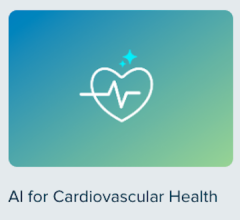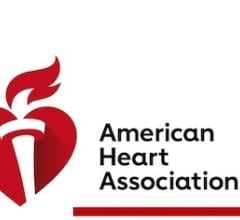
February 28, 2022 — A new collection of scientific articles published today shines a light on the differences between men and women when it comes to heart health.
Experts from the Smidt Heart Institute at Cedars-Sinai led the project, which resulted in an anthology of 14 scientific articles that review the past decade of research on women’s cardiovascular health. The collection of articles—called a compendium in medical circles—was published by Circulation Research, the peer-reviewed journal of the American Heart Association and its Council on Basic Cardiovascular Sciences.
The articles were written by thought leaders across cardiac subspecialties and summarize current knowledge regarding differences between the sexes in cardiovascular risks and outcomes. The articles also identify critical scientific gaps and future research priorities.
“The timing is right for this review and call to action—not only because of where the science is now, but because COVID-19 has starkly reminded us that sex differences can profoundly impact health outcomes,” said Susan Cheng, MD, MPH, MMSc, the Erika J. Glazer Chair in Women's Cardiovascular Health and Population Science, professor of Cardiology, and senior editor of the compendium. “One important point the compendium highlights is how females and males differ in many aspects of fundamental biology.”
The structure of two of the heart’s four major valves—the tricuspid and mitral valves—is different in women than in men, as are the heart’s electrical pathways, anatomy of arteries and veins, and even the cellular composition of male and female hearts, the experts say.
“This sets the stage for important differences in risk factors, including elevated blood pressure, symptoms such as chest pain, and outcomes like heart failure,” said Natalie Bello, MD, MPH, director of Hypertension Research in the Smidt Heart Institute’s Department of Cardiology and co-editor of the collection of articles. “But despite what the research findings make clear, sex-specific indicators of heart disease risk are rarely taken into account.”
Featured research also covers sex-specific differences in:
· Genetic origins of certain cardiovascular traits
· Symptoms of various types of heart failure, heart disease, stroke and arterial disease
· Risks to heart health caused by cancer and cancer treatment
· Effectiveness of cardiovascular treatments
· Impact of immune disorders on heart health
· Pregnancy and reproductive risk factors for cardiovascular disease
· Biomarkers for cardiovascular disease
Cheng, Bello and compendium co-editor Noel Bairey Merz, MD, director of the Barbra Streisand Women’s Heart Center, emphasize that a one-size-fits-all approach to diagnosing and treating heart disease and stroke risk in women must end. In the compendium, the authors say the ways in which cardiologists examine their patients, measure risk factors, make diagnoses and treat disease need to be more tailored.
“Women suffer a greater risk of heart attack and stroke for any elevation in blood pressure and are more likely to be hospitalized for high blood pressure complications than men,” said Bairey Merz. “Women also tend to have worse outcomes than men due to missed or delayed diagnosis or inadequate treatment.”
Researchers add that many common cardiovascular diseases cause different symptoms in women than in men. Women’s symptoms tend to be disregarded—and therefore, women often go undiagnosed—which compendium authors suggest is because women’s symptoms are also understudied.
“Now more than ever, we need to include sex as a biologic variable in all of our science,” said Bello. “When we enroll adequate numbers of women and men in our research to examine sex-specific differences, we can make tremendous scientific discoveries that improve the lives of all individuals.”
Other Cedars-Sinai researchers who contributed to studies in the compendium are Christine Albert, MD, MPH; Aleksandra Binek, PhD; Melanie Chen, MD; Joanna Chikwe, MD; Joseph Ebinger, MD; Alan Kwan, MD; Margo Minissian, PhD, ANCP; David Ouyang, MD; Sarah J. Parker, PhD, MS; Odayme Quesada, MD; Roopinder Sandhu, MD, MPH; Chrisandra Shufelt, MD, MS; Jennifer Van Eyk, PhD; and Janet Wei, MD.
For more information: https://www.cedars-sinai.org
Related Women's Health Content:
Sex Differences in 'Body Clock' May Benefit Women’s Heart Health
Diagnostic Differences in Women’s Heart Health
New Advice Will Help Women with Congenital Heart Defects Navigate Pregnancy
VIDEO: Differences in Cardiac Complications and Presentation Between Men and Women — Interview with Cindy Grines, M.D.
Pregnancy-Related Heart Failure Strikes Black Women Twice as Often as Other Races
Cardiac Imaging Reveals Roots of Preeclampsia Damage in Pregnant Women
Marked Increase in Cardiovascular Risk Factors in Women After Preeclampsia
VIDEO: Sex Differences in Diagnosing Heart Disease in Women — Interview with Doreen DeFaria Yeh, M.D.
VIDEO: How to Build a Successful Women’s Heart Center — Interview with Malissa Wood, M.D.
Find more articles on women's heart issues in the Women's Cardiovascular Health channel


 January 19, 2026
January 19, 2026 









